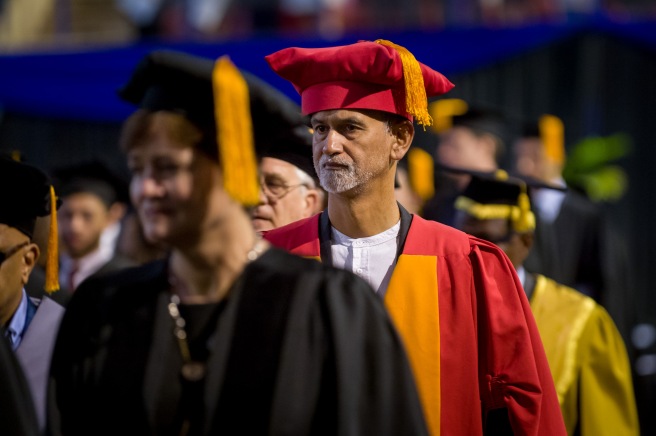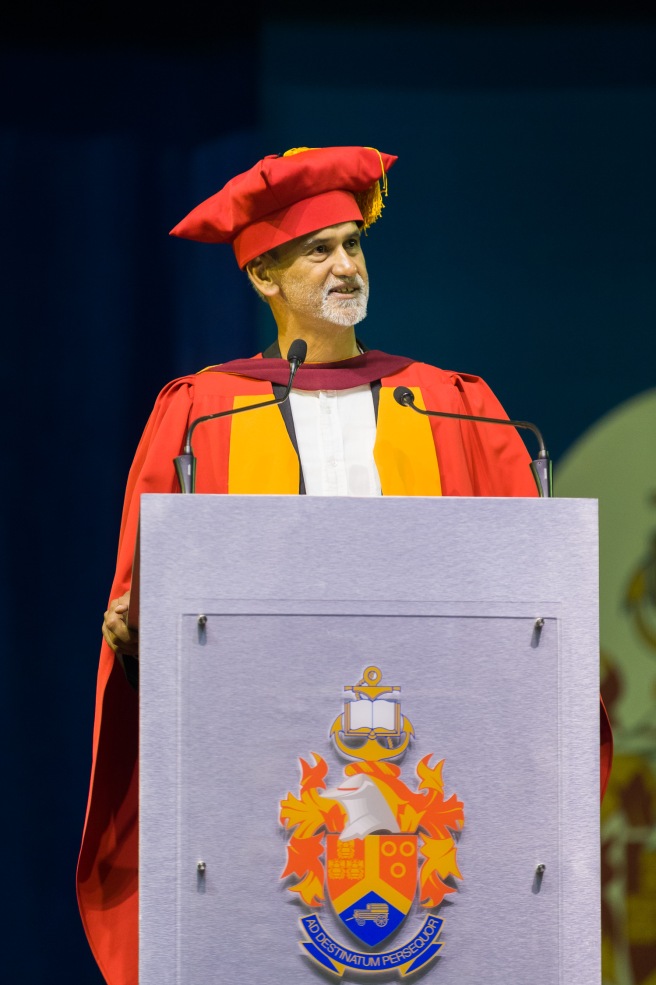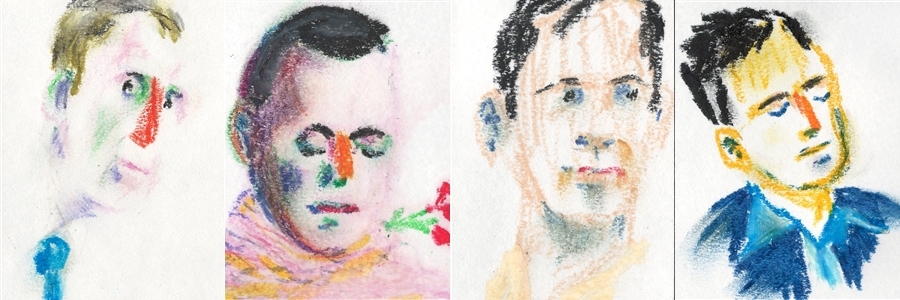
By Diane de Beer
This has been a good year for cultural activist and playwright Mike van Graan.
Not only has he won the 2018 Hiroshima Foundation for Peace and Culture, a biannual international award recognising those who foster dialogue, understanding and peace in conflict areas, but was also awarded an honorary doctorate from the University of Pretoria.
The opening lines of his address at the university ceremony continues his interrogation of the cultural landscape: “This is my first graduation ceremony. I was part of the apartheid-must-fall generation. To attend the University of Cape Town – a “white” university – I was required to apply for a permit from the Department of Coloured Affairs.
“In terms of the separate-and-unequal policies of the time, it was deemed that people of my classification would attend the University of the Western Cape. To qualify for a permit to UCT, I had to do a subject not offered at UWC. My permit subject was … drama.
“ By the time of my application, I had never been to a formal theatre; the state-subsidised Nico Malan Theatre in Cape Town where I lived, was boycotted first because it started as a whites-only facility and restrictions were placed on racially mixed casts, and then when it received a permit to allow people other than those classified white, as audience members, this was deemed an affront to those who self-identified as “black”.
“Similarly, many in my generation boycotted our graduation ceremonies; while we were obliged to apply for permits to obtain what we considered to be better education offered at institutions like UCT at that time, we viewed graduation ceremonies as symbolic inductions into an essentially unjust system.

“We live in different times. And yet, we are no less shaped as individuals by the context in which we live, and we are no less graduating into a society wracked by deep inequality.
“As a playwright, I seek to interrogate contemporary moral questions we encounter in a society in transition.”
More than anything the above should explain to those not familiar with this provocative playwright’s work (including Green Man Flashing, Some Mothers’ Sons and Brothers in Blood) why he is celebrated by the university.
Van Graan, whose plays have often been performed in Pretoria, Johannesburg, Cape Town and around the country as well as internationally – most recently State Fracture at the Klein Karoo Nasionale Kunstefees (KKNK) and Green Man Flashing at Sandton’s Theatre on the Square – is described as a “courageous and provocative advocate not only for local theatre, but also for the broader field of cultural heritage in general,” by Prof Vasu Reddy, Dean of the Faculty of Humanities.
“His plays interrogate South Africa’s socio-political conditions and he locates these explorations in a deeply human context to create layered and emotionally evocative plays. His plays are testimony to a critical and political consciousness that both demonstrates and encourages engaged, critical citizenship in and through the theatre,” the citation reads in part.
“I am deeply conscious that while I am able to write and produce these plays, in a society in which more than half the population lives below the poverty line, with official unemployment at 26%, many of my fellow citizens will be unable to access these plays, and not enjoy their fundamental right “to participate in the cultural life of the community and enjoy the arts” as affirmed in Article 27 of the Universal Declaration of Human Rights.
“In such a divided society, with its inheritance of division, whose stories are told? Whose values and interests are served by theatre? Whose standards are used to evaluate theatre? Who acts, who directs, who designs the lighting, the costumes, the sets?
“It is not enough simply to write and produce within the system, within the structures as they exist; it is necessary simultaneously to work for systemic and structural changes within the theatre sector itself, and within our broader society that shapes both the theatre industry and the opportunities afforded our citizenry, always working towards a more just, more humane order,” he concludes.
That is who Mike van Graan is. At a time when the number of journalists, arts journalists in particular, often at the bottom of the rung in news structures, was curtailed, covering arts and culture in a broader and more in-depth context became impossible.
Van Graan, who has always had much on his mind stepped in with regular newsletters The Cultural Weapon, writing about the state of the arts in general and more particular, in this country, where the arts played such a huge role in the struggle. He was determined to participate, to make his voice heard on as many platforms as possible and was often a lone voice, much maligned.
Awarded the Doctor of Philosophy degree from the UP Faculty of Humanities on April 23 and currently in Sweden where he will be awarded the 2018 Hiroshima Foundation for Peace and Culture prize (previously awarded to Antjie Krog and John Kani and worth R1-million), it could not happen to a more dedicated cultural warrior.
May his fight always be as persistent.

* Mike van Graan is the president of the African Cultural Policy Network and an associate professor of drama at the University of Cape Town. Professionally, he works as a consultant in the arts and culture arena, while also serving on UNESCO’s technical facility for the 2005 Convention on the Protection and Promotion of the Diversity of Cultural Expressions. Creatively, he works as a playwright and has written 30 plays to date, most of which interrogate the post-apartheid condition.
- Green Man Flashing will also have a run at this year’s National Arts Festival as well as the Hilton Festival in KwaZulu-Natal.
